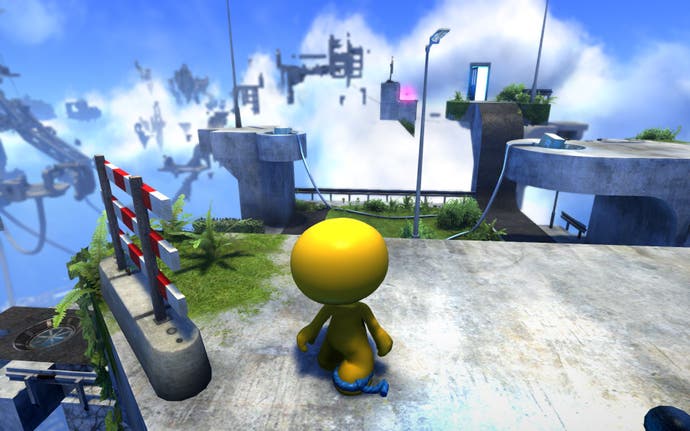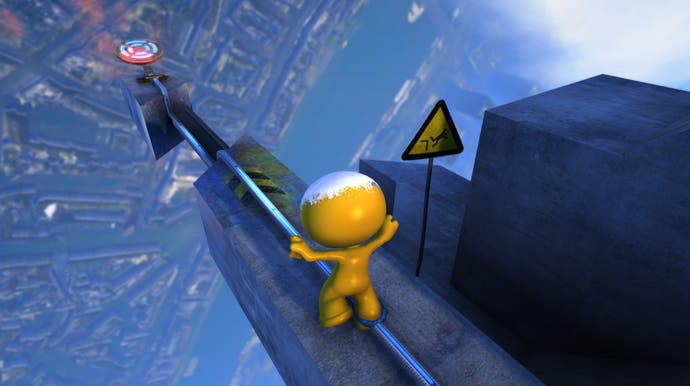Youropa: Following the thread has never been more enjoyable
All these worlds are yours.
The Eiffel Tower is caught mid-explosion, pieces of it pulled out and hanging in the air, as if it's all part of one of those clever diagrams that shows you how complex things are put together. Why not? The Eiffel Tower - this strange, peaceful, mangled version of it - lies at the heart of Youropa, a game I meant to play for just half an hour the other day to see what it was all about. A game that instead drew me in for many hours of delight and genuine wonder.
God, Youropa is special. The developers name-drop classics like Portal and Jet Set Radio, and I can see what they mean, just about. But I'd also add The Witness and Psychonauts and probably a dozen other games, and yet that would all be misleading anyway, because while Youropa is clearly made from cherished pieces of favourite games it's also entirely its own thing with its own character.
Is it a platformer? Kind of, not that you spend much time jumping. Still, there are doors to open, a map to navigate from node to node, pressure plates and switches and enemies and lifts and all that platforming jazz. But it's all tied together with a glorious conceit that is hard to describe yet incredibly easy to understand once you see it in motion: each stage is a little blockish knot of land floating in space, and while you can't jump, you can walk up any surface that has a gentle curve to it, which means that you can walk over to a wall, walk up the wall, follow it over its own humped back and maybe round a corner, until you're pretty much upside down but still having a wonderful time of it all.

Navigation poses a challenge in its own right, in other words. You often know where you're headed - the nodes of Youropa are linked together by a sort of subway map that always shows you where it would like you to go next, and you can also stop at any point to pull the camera back and turn the world you are standing on around and study its various surfaces - but you have to work out how to get there. Which walls can you climb? And if you can climb a seemingly unpromising wall, why might you want to? What might be behind it, or lurking on the rim of it? Might there be a way inside?
With such a wonderful basis for fun, Youropa piles on complications. Barking dogs and pressure plates and doors that will only open once you have powered up the cable connected to them, which means tracing the cable back the way you came and maybe discovering something you missed. It's puzzling, but it's almost touristy in its gentle nature, and the challenge is always quiet and friendly. New skills are dropped in along new gadgets and new threats. You learn to pick things up, to kick them, and you learn that jump pads will fling you across the map and that rainwater will eat away at your life. No wonder I spent so long in here, going from one task to the next, always with that lovely feeling of steady progress.
The thing that has kept me playing more than anything is the way the individual levels are linked together. I finish one area and then hover over it in the menu where you can toy with a little model of it. Did I connect all the wires? Did I find all the doors and follow all the paths? Some games are more like toys than games; Youropa isn't like that, but it feels like it plays out on a series of toys, each new landscape promising a fresh kind of surprise,

